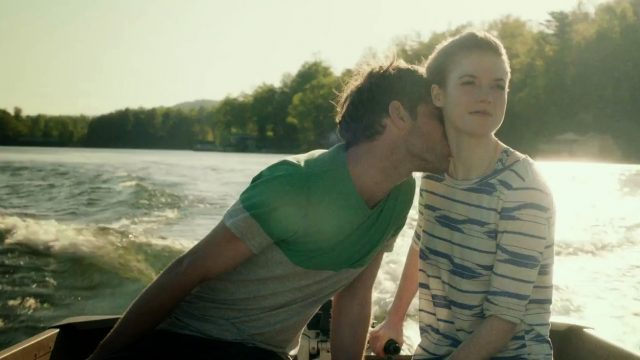Honeymoon has to be precise because it’s a horror movie where the horror shows itself through a loss of precision. Soon after newlywed Bea (Rose Leslie) is found naked in the woods in the middle of the night, her language begins to devolve. “I’m just going to take a sleep,” she says, instead of “nap”; she blanks on “suitcase” and comes up with “clothing box.” It’s chilling in a low-key way–until you get to the worm dragged out of her body, that’s chilling in a more high-key way–and the movie’s most brilliant touch is bringing the dislocation home. Bea’s now-slippery grasp on the world around her calls attention to the instability that was already there–the restaurant that’s just called Restaurant (“Their specialty is food,” Bea quips) and even the ambiguity of Bea’s own name, a name, a letter, an endearment (“honey bee”). The ordinary stakes of starting a marriage and believing, against all odds, that you really know the person you’re going to sleep with every night, take on new and profound heights here.
Most of all, that’s true when Paul (Harry Treadaway) spots Bea looking into the mirror, practicing ways to turn down sex. More than something like Gone Girl–as much as I love that movie’s pulpy thrills–this gets at the horror of realizing that your spouse is a stranger to you. The things you reflexively assumed were natural are artificial, and you don’t even necessarily get to know whether that means that something is wrong or whether that’s just the way it is.
Honeymoon is, if anything, hopeful, because Paul and Bea’s love is real and strong: they do the best they can for each other, and Paul is the reason Bea holds on to her sense of self as long as she does. Love outlasts sanity. It won’t save you, but it’s real.

